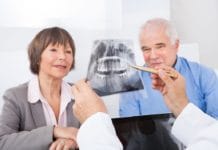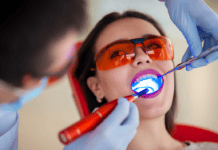The key to solving most chronic diseases is prevention, and Alzheimer’s disease (AD) and cognitive decline are no different. Hundreds of billions of dollars have gone into research with no consensus on treatment or cure, but there is significant evidence that the answer is in what is called “modifiable risk factors.”1,2
Dr. Rudy Tanzi is one of the leading researchers for not only Alzheimer’s disease but many neurological diseases. He has focused much of his research on genetics since he was a student in the 1980s.3 Dr. Tanzi and Dr. Deepak Chopra have written a book (yet to be published) about the five key areas in the prevention of cognitive decline and AD. They are specific yet simple, and we need to spread the word to help drive down the casualties of the fifth leading cause of death in the United States.
Sleep
With Alzheimer’s disease, beta-amyloid is a hallmark for the disease, and in 2012 it was discovered that sleep helps clear beta-amyloid plaques in mice. A similar study in humans showed that poor sleep is strongly associated with dementia, although that study was not completely clear whether one leads to the other or vice versa. A new study in the journal Neurology finds that people who get less REM, or dream-stage sleep, may be at higher risk for developing dementia.4
One thing is certain: Sleeping at least eight hours a night is of utmost importance. Short periods of sleep affect every system in the body negatively. To improve your own sleep, avoid looking at electronic devices at night because it emits blue light that could disrupt your sleep-wake cycle. Keeping your bedroom cool and dark shows significant improvements in sleep. Some individuals take up yoga or other physical exercises, which not only provides cardiovascular benefits but results in better rest.
In our dental practices, we are in the perfect place to assess airways for sleep-disordered breathing. It’s excellent if the dentist provides sleep appliances, but, if not, we can always refer to a sleep specialist for an evaluation. The best help for your patient is to just begin a dialogue sharing sleep hygiene tips and encourage them to prioritize sleep − after all, we know a thing or two about hygiene!
Handling Stress
Cortisol is a hormone released by the adrenal glands in response to stress in what’s known as our fight-or-flight response. Say you come home and encounter an intruder in your home. Your reaction is to run away or confront them. Regardless of the choice you make, the goal is survival, which makes the effect of acute stress beneficial to you. Long-term or chronic stress, on the other hand, is harmful to many systems in the body. But in the brain, cortisol has negative effects on learning, memory, and the immune system.
Even with our hectic lives, there are many ways to de-stress: meditate, take up a hobby, and go to a yoga class or exercise. Chronic cortisol is such a significant problem for brain health. A pharmaceutical company is in late trials for a drug to block an enzyme that converts inactive cortisone into the active form of cortisol. As the drug penetrates the blood-brain barrier, it reduces cortisol directly within the brain.
Interacting with Others
Social interactions have many benefits and are associated with positive mental health. Studies show that seniors who are socially engaged, frequently involved in social activities, and physically active have better cognition. There is no doubt that spending time with loved ones or friends strengthens relationships and provides many opportunities for an active lifestyle, which are great ways to relieve or minimize the effects of stress.
If you have elderly patients who live alone and you suspect they don’t socialize much, familiarize yourself with community programs for them that you can suggest.
Learn New Things
Studies have shown that individuals who speak a language other than their native language tend to show less cognitive decline as they age than those who speak only one language. Learning new skills has also been associated with good mental health; for example, learning to play a musical instrument and even learning yoga.
The current trend is that we should engage in activities that challenge our minds and improve memory, such as solving puzzles, painting or coloring, and even playing video games! Who knew? Another advantage of learning a new skill is that they often take place in a social setting, which gives the added benefit of increased social interaction.
Diet
Researchers agree the Mediterranean diet could be the key to minimizing the negative effects of aging on our brain function. The diet consists of eating fruits, vegetables, beans, whole grains, and nuts regularly, as well as a few servings of fish and poultry each week. Having a moderate intake of red wine, which has been linked to good cardiovascular health, and spending your meals with loved ones makes the experience even more enjoyable.
There is another diet called the MIND diet, which is a combination of the Mediterranean diet and the DASH diet that focuses on reducing hypertension. The MIND diet is getting positive results in brain health and has a strong focus on green leafy vegetables.
Exercise
A study in rats showed that aerobic exercise such as jogging leads to the birth and growth of new brain cells in the hippocampus, the part of the brain involved in learning and memory. Recent research has shown that a high-fat diet limits the birth of new neurons in female mice, but more research is needed.5
Individuals who regularly exercise also have better cardiovascular health than those who live a sedentary lifestyle. You don’t have to be a bodybuilder or marathon runner; a 40-minute walk is shown to have significant benefits. The relationship between cardiovascular health and normal brain function is clear: plaque in the arteries, plaque in the brain, and people who have high blood pressure are more likely to suffer from a heart attack, stroke, and dementia. Keeping our hearts healthy is important for all systems, and your brain is no different.
Dr. Tanzi speaks about the overlapping of activities between categories – killing two birds with one stone, so to speak. I have concluded as an Italian girl nearing retirement that I will be moving to Italy with my girlfriends, learning the language, walking the streets, and stopping for lunch of the standard Mediterranean diet with, of course, a sip of vino. My retirement life will clearly not be stressful, so sleeping will be a piece of cake. Ciao!
Need CE? Click Here to Check Out the Self-Study CE Courses from Today’s RDH!
Listen to the Today’s RDH Dental Hygiene Podcast Below:
References
- Chen, S.T., Siddarth, P., Ercoli, L.M., et. al. Modifiable risk factors for Alzheimer’s Disease and subjective memory impairment across age groups. PLoS One. 2014; 9(6): e98630. DOI:10.1371/journal.pone.0098630. Retrieved from https://www.ncbi.nlm.nih.gov/pmc/articles/PMC4045888/
- Edwards, G.A., Gamez, N. Escobedo, G., et. al. Modifiable Risk Factors for Alzheimer’s Disease. Frontiers in Aging Neuroscience. 2019 June; 11: 146. Retrieved from https://www.frontiersin.org/articles/10.3389/fnagi.2019.00146/full
- Dr. Rudolph Tanzi (also Rudy Tanzi) is the Joseph P. and Rose F. Kennedy Professor of Neurology at Harvard University, and Vice-Chair of Neurology, Director of the Genetics and Aging Research Unit, and Co-Director of the Henry and Allison McCance Center for Brain Health at Massachusetts General Hospital (MGH). He also serves as Chair of the Cure Alzheimer’s Fund Research Leadership Group and Director the Cure Alzheimer’s Fund Alzheimer’s Genome Project™.
- Pase, M.P., Himali, J.J., Grima, N.A., et. al. Sleep architecture and the risk of incident dementia in the community. Neurology. 2017 Sep; 89(12): 1244-1250. DOI:10.1212/WNL.0000000000004373. Retrieved from https://n.neurology.org/content/89/12/1244
- Robison, L.S., Albert, N.M., Camargo, L.A., et. al. High fat diet-induced obesity causes sex-specific deficits in adult hippocampal neurogenesis in mice. eNeuro. 2019 Dec; 0391-19. DOI: 10.1523/ENEURO.0391-19.2019. Retrieved from https://www.eneuro.org/content/early/2019/12/19/ENEURO.0391-19.2019












